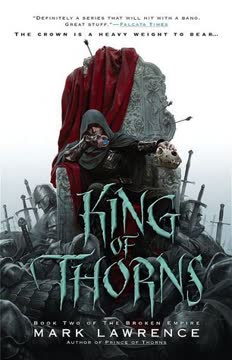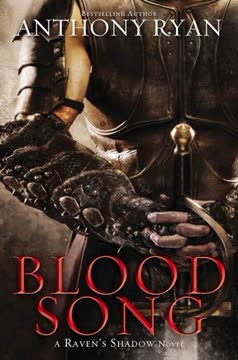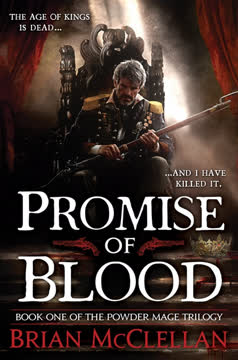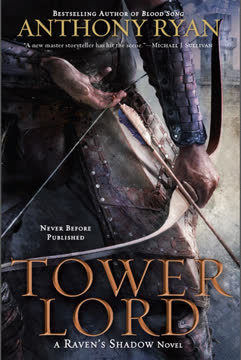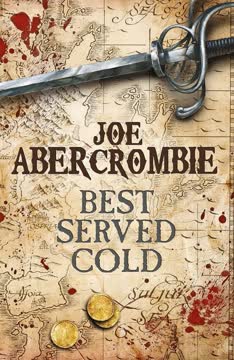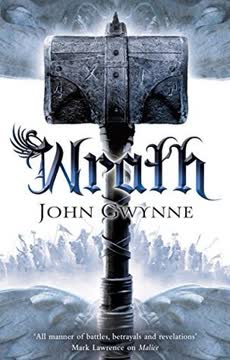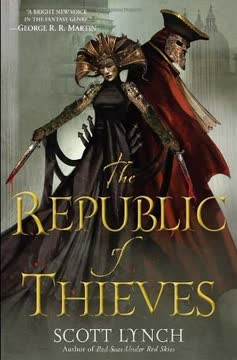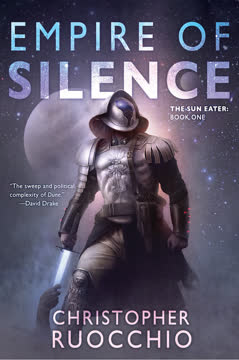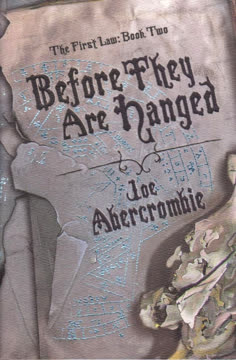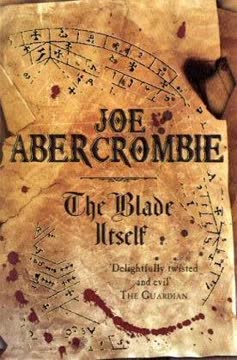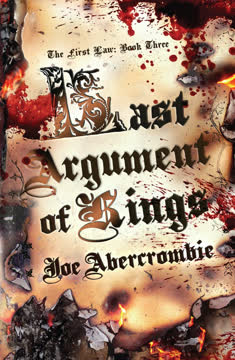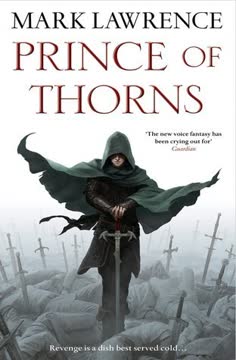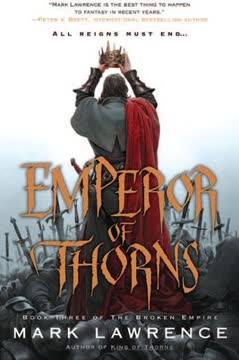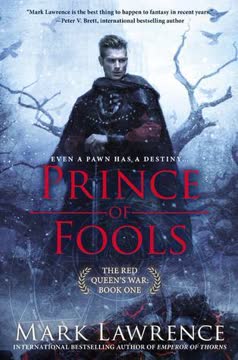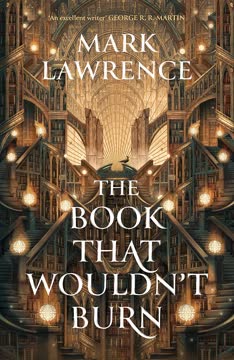Plot Summary
A Kingdom Under Siege
Jorg Ancrath, now King of Renar, finds himself defending his kingdom against the formidable Prince of Arrow and his vast army. Despite the dire situation, Jorg's defiance and strategic acumen shine as he leads a daring sortie, using the treacherous mountain terrain to his advantage. The battle is intense, and Jorg's cunning tactics inflict significant damage on the enemy. However, the Prince's forces are relentless, and Jorg realizes that a direct confrontation would be suicidal. As the siege tightens, Jorg must rely on his wits and the loyalty of his men to survive the onslaught.
Memories and Madness Unleashed
Jorg possesses a mysterious copper box containing memories too painful to bear. These memories, once unleashed, threaten to unravel his sanity. Haunted by visions of Katherine, a woman he desires but cannot have, Jorg confronts a tangled web of violence and betrayal. The box becomes both a tool and a torment, offering glimpses of forgotten plans and the potential for redemption or ruin. As Jorg grapples with the contents, he is forced to confront the darkest parts of himself, revealing the complexity of his character and the depth of his internal struggle.
A Dangerous Alliance
Jorg embarks on a perilous journey north, seeking the aid of Ferrakind, a powerful fire-mage. Accompanied by his monstrous companion Gorgoth and the fire-touched child Gog, Jorg navigates treacherous landscapes and encounters strange creatures. Reflecting on his past and the choices that have led him to this point, Jorg is driven by the hope that Ferrakind can help control Gog's destructive powers. The alliance with Ferrakind is uncertain, and Jorg must tread carefully to avoid being consumed by the very fire he seeks to harness.
The Fire Within Gog
The young boy Gog, marked by fire, struggles to control the elemental forces within him. His powers are both a blessing and a curse, capable of great destruction if left unchecked. Jorg sees a reflection of his own inner turmoil in Gog and is determined to help the boy master his abilities. As they journey together, Gog's powers become increasingly volatile, drawing the attention of Ferrakind. Jorg must find a way to save Gog from himself, even as the fire-mage's influence looms large.
A Treacherous Journey North
Jorg and his companions traverse the dangerous northern territories, facing both natural and man-made threats. The journey tests their resolve and forces Jorg to confront his own limitations. Along the way, they encounter remnants of the ancient Builders' civilization, hinting at the power and knowledge lost to time. Jorg's determination to reach Ferrakind is unwavering, but the path is fraught with peril, and the cost of failure is high. As they draw closer to their destination, the stakes become ever more dire.
The Prince of Arrow's Threat
The Prince of Arrow, a charismatic and ambitious leader, poses a significant threat to Jorg's rule. With a reputation for mercy and a vision of a united empire, the Prince seeks to win hearts and minds as much as he does battles. Jorg, however, sees through the Prince's facade and recognizes the danger he represents. As the Prince's forces close in, Jorg must decide whether to confront this rival head-on or find another way to protect his kingdom. The conflict between them is not just a battle for territory but a clash of ideals and ambitions.
A Duel with Destiny
In a desperate bid to save his kingdom, Jorg Ancrath proposes a duel to the Prince of Arrow, Egan, to decide the fate of the Renar Highlands. Despite the overwhelming odds and Egan's reputation as an unparalleled swordsman, Jorg is determined to face him. The duel is not just a battle of swords but a clash of wills, with Jorg relying on his cunning and a secret weapon—a gun from the ancient Builders' time. As the duel unfolds, Jorg's strategic mind and willingness to defy convention are put to the ultimate test.
The Fire Within Unleashed
As the battle rages, Jorg finds himself engulfed by the fire magic that has been dormant within him since Gog's death. This power, a dangerous gift from the past, threatens to consume him as he unleashes it upon the Prince's army. The flames become a weapon of mass destruction, decimating the enemy forces but also threatening to destroy Jorg himself. In this moment of chaos, Jorg must confront the duality of his nature—the potential for both creation and annihilation.
A Kingdom in Ruins
The Renar Highlands lie in ruins after the explosive confrontation. The once-mighty walls of the Haunt are reduced to rubble, and the battlefield is littered with the charred remains of soldiers. Jorg's victory is pyrrhic, as the cost of his triumph is the destruction of his own kingdom. Amidst the smoke and ash, Jorg grapples with the consequences of his actions and the heavy burden of leadership. The victory, though hard-won, leaves him questioning the price of power and the path he has chosen.
The Ghosts of the Past
Haunted by the memories of his past, Jorg is forced to face the ghosts that have shaped him. The death of his brother Degran, a crime he cannot forgive himself for, looms large in his mind. As he navigates the treacherous landscape of his own psyche, Jorg must reconcile the boy he was with the man he has become. This internal struggle is mirrored by the external chaos of the world around him, as the Dead King and other dark forces gather strength.
A New Alliance Forged
In the wake of the battle, Jorg forms a new alliance with the House Morrow, solidifying his claim to the throne of Arrow. This strategic marriage to Lady Miana brings with it the promise of military support and a path to greater power. However, the alliance is not without its challenges, as Jorg must navigate the complexities of court politics and the expectations of his new allies. The union is both a personal and political maneuver, setting the stage for Jorg's next move in the game of empire.
The Price of Power
As he rides toward Arrow, Jorg contemplates the cost of his ambition and the sacrifices he has made. The open copper box of memories serves as a reminder of the sins he carries and the darkness within him. Despite the victories and alliances, Jorg is acutely aware of the toll his quest for power has taken on his soul. The path ahead is fraught with danger, but Jorg is resolute in his determination to claim the empire throne. In this moment of introspection, he acknowledges the dual nature of his journey—both a pursuit of glory and a descent into darkness.
Characters
Jorg Ancrath
Jorg is a complex character, driven by ambition and haunted by his past. As the King of Renar, he faces overwhelming odds and must rely on his cunning and ruthlessness to survive. Jorg's journey is one of self-discovery, as he grapples with the memories contained in the copper box and the choices that have shaped him. His relationship with Katherine and his desire to protect Gog reveal a more vulnerable side, hinting at the possibility of redemption.
Katherine Ap Scorron
Katherine is a pivotal figure in Jorg's life, representing both desire and unattainable ideals. Her relationship with Jorg is complex, marked by violence and longing. Katherine's own ambitions and desires are at odds with the roles imposed on her, and she seeks something more than being a mere prize in the games of men. Her interactions with Jorg reveal the depth of her character and the struggles she faces in a world that seeks to define her.
Gorgoth
Gorgoth is a leucrota, a creature of immense strength and loyalty. Despite his fearsome appearance, Gorgoth possesses a deep sense of honor and wisdom. His bond with Gog and his willingness to aid Jorg highlight his complexity. Gorgoth's understanding of the world and his ability to communicate with the trolls of the Heimrift make him an invaluable ally in Jorg's quest.
Gog
Gog is a young boy with the power of fire coursing through him. His abilities are both a gift and a curse, threatening to consume him if left unchecked. Gog's journey is one of self-discovery, as he learns to control his powers and find his place in the world. His relationship with Jorg is central to the narrative, as both characters seek redemption and understanding in each other.
Ferrakind
Ferrakind is a formidable figure, a man who has become more fire than flesh. His mastery of the elemental forces makes him a dangerous ally, and his intentions are shrouded in mystery. Ferrakind's interactions with Jorg and Gog reveal the potential for both salvation and destruction, as he represents the ultimate test of their resolve and strength.
Prince Orrin of Arrow
Prince Orrin is a leader with a vision of a united empire, seeking to win over both allies and enemies with his charm and ideals. His reputation for mercy and justice contrasts with Jorg's ruthless approach, making him a formidable opponent. Orrin's relationship with Katherine adds another layer of complexity to his character, as he navigates the challenges of leadership and love.
Makin
Makin is Jorg's trusted companion, a skilled swordsman with a knack for diplomacy. His loyalty to Jorg is unwavering, and he often serves as a voice of reason amidst the chaos. Makin's ability to connect with others and his understanding of the political landscape make him an essential ally in Jorg's quest to protect his kingdom.
Coddin
Coddin is a key figure in Jorg's life, serving as both a mentor and a father figure. His wisdom and experience are invaluable to Jorg, and his loyalty is unquestionable. Coddin's relationship with Jorg is marked by mutual respect and affection, and his guidance is crucial in navigating the challenges of leadership.
Sageous
Sageous is a manipulative figure, skilled in the art of influencing others through dreams and subtle suggestions. His true intentions are unclear, and his allegiance is ever-shifting. Sageous's presence in Jorg's life is a constant reminder of the unseen forces at play, and his influence poses a significant threat to Jorg's plans.
Egan of Arrow
Egan is Prince Orrin's brother, a man driven by passion and a thirst for battle. His presence adds a layer of danger to the Prince's campaign, as Egan's methods are often brutal and uncompromising. His interest in Katherine complicates the dynamics between the key players, adding tension to the unfolding drama.
Miana
Miana is Jorg's young bride, a girl with the mind of a strategist and the heart of a warrior. Despite her age, she proves to be a formidable ally, using her intelligence and resourcefulness to aid Jorg in his quest for power. Her actions during the battle demonstrate her willingness to make difficult decisions and sacrifice for the greater good. Miana's presence in Jorg's life adds a new dimension to his character, challenging him to consider the consequences of his actions.
Plot Devices
The Copper Box
The copper box is a central plot device, containing memories that Jorg has chosen to forget. Its thorn-patterned exterior hints at the pain and darkness within. The box serves as both a tool and a torment, offering Jorg glimpses of forgotten plans and the potential for redemption or ruin. Its presence in the narrative underscores the themes of memory, identity, and the struggle for control.
The Builders' Legacy
The remnants of the Builders' civilization are scattered throughout the narrative, offering glimpses of a world long past. Their creations, from the mysterious copper box to the awe-inspiring bridge at Remagen, serve as reminders of the power and knowledge lost to time. The Builders' legacy is a constant presence, influencing the characters' actions and shaping the world they inhabit.
The Sword-Song
The sword-song is a recurring motif, representing the rhythm and flow of battle. It serves as a metaphor for Jorg's journey, as he navigates the challenges of leadership and the pursuit of his ambitions. The sword-song underscores the themes of conflict, choice, and the search for meaning in a chaotic world.
The Fire Within
The theme of fire is central to the narrative, symbolizing both destruction and transformation. Gog's struggle to control his powers mirrors Jorg's own inner turmoil, as both characters seek redemption and understanding. The fire within serves as a powerful metaphor for the characters' journeys, highlighting the potential for both salvation and ruin.
The Duel
The duel between Jorg and the Prince of Arrow serves as a pivotal plot device, representing the clash of ideals and ambitions. It is a moment of high tension and drama, as the outcome will determine the future of the Renar Highlands. The duel is not just a physical confrontation but a test of strategy and cunning, with Jorg relying on his wits and a secret weapon to gain the upper hand.
The Builders' Ring
The Builders' ring is a powerful plot device, allowing Jorg to see the world from a unique perspective. It serves as a metaphor for the broader themes of the narrative, highlighting the tension between knowledge and power. The ring's ability to reveal hidden truths and offer new insights is both a blessing and a curse, as it forces Jorg to confront the reality of his situation and the choices he must make.
Analysis
"King of Thorns" delves into the complexities of power, ambition, and the human psyche. Through Jorg's journey, Mark Lawrence explores the duality of human nature—the capacity for both creation and destruction. The narrative is rich with themes of memory, identity, and the struggle for control, as Jorg grapples with his past and the choices that have shaped him. The book challenges readers to consider the cost of ambition and the sacrifices made in the pursuit of power. Ultimately, "King of Thorns" is a tale of redemption and self-discovery, as Jorg confronts the darkness within and seeks a path to a brighter future.
Last updated:
FAQ
Synopsis & Basic Details
What is King of Thorns about?
- A King's Desperate Defense: King Jorg Ancrath, now eighteen, faces an overwhelming invasion of his Renar Highlands by the Prince of Arrow's vast army, forcing him to employ cunning, brutal tactics and unexpected alliances to defend his single, ugly castle, the Haunt. The narrative unfolds across two timelines: Jorg's present-day wedding and siege, and his journey four years prior to seek a fire-mage for Gog.
- Unearthing Buried Memories: Central to Jorg's struggle is a mysterious copper box, a repository of his most traumatic and dangerous memories, which he must confront and selectively access to formulate his desperate plans, even as its contents threaten his sanity and reveal hidden truths about his past actions. This internal battle mirrors the external war.
- A Quest for Power and Identity: The story follows Jorg's relentless pursuit of power and his evolving understanding of himself, from a ruthless road-brother to a king grappling with the burdens of leadership, family, and the consequences of his violent ambition, all while navigating a world shaped by ancient Builder technology and subtle magical forces.
Why should I read King of Thorns?
- Unflinching Moral Ambiguity: Readers are drawn into Jorg's morally complex world, where heroism is often indistinguishable from villainy, and difficult choices are made with brutal pragmatism, offering a refreshing departure from traditional fantasy protagonists. His internal monologues provide a raw, unfiltered look at his psyche.
- Masterful Dual Timeline Narrative: The book expertly weaves together two distinct timelines, enriching the present-day siege with crucial backstory, revealing character motivations and plot twists with a compelling rhythm that keeps readers constantly engaged and re-evaluating events. The past illuminates the present, deepening the impact of Jorg's decisions.
- Deep Thematic Exploration: Beyond the action, the novel delves into profound themes of fate versus free will, the nature of power, the burden of memory, and the possibility (or impossibility) of redemption, inviting readers to ponder the philosophical underpinnings of Jorg's journey and the Broken Empire.
What is the background of King of Thorns?
- Post-Apocalyptic Europe Setting: The story is set in a distant future version of Europe, referred to as the "Broken Empire," where advanced Builder (our civilization) technology lies scattered and misunderstood, and humanity has regressed to a medieval-like state, constantly warring for fragmented territories. This blend of fantasy and sci-fi elements creates a unique and intriguing world.
- Feudal Political Landscape: The Hundred War, a perpetual conflict among numerous petty kingdoms, duchies, and earldoms, forms the political backdrop. Jorg's Renar Highlands is a small, rugged kingdom, strategically important due to its mountainous terrain, making it a target for ambitious figures like the Prince of Arrow who seek to unite the empire.
- Subtle Magic & Ancient Science: The world is permeated by a subtle, often misunderstood "magic" that is revealed to be remnants of Builder science or its unintended consequences. Necromancy, fire-magic, dream-weaving, and advanced observational tools (like the Builder's ring) are all part of this legacy, influencing the characters and the very fabric of reality.
What are the most memorable quotes in King of Thorns?
- "All times are desperate.": This quote, uttered by Jorg in Chapter 4, encapsulates his cynical and pragmatic worldview, suggesting that life is a constant struggle where every decision carries high stakes, justifying his often ruthless actions. It highlights the pervasive sense of urgency and danger that defines his existence.
- "When a game cannot be won, change the game.": From Chapter 9, this line, attributed to "the book of Kirk," is Jorg's core philosophy, reflecting his cunning and unconventional approach to seemingly insurmountable challenges. It defines his strategic brilliance and willingness to subvert expectations, even his own.
- "I will burn and I will harrow and Orrin's lands, Egan's blood-stained inheritance, will be delivered into my hands.": Spoken by Jorg in the final chapter, this declaration reveals his renewed, unbridled ambition and the dark path he fully embraces after confronting his past. It signifies his transformation and commitment to a brutal, all-consuming quest for dominance.
What writing style, narrative choices, and literary techniques does Mark Lawrence use?
- First-Person, Dual-Timeline Narrative: Lawrence employs a first-person perspective, primarily from Jorg's cynical and introspective viewpoint, split between the present-day siege and flashbacks four years prior. This allows for deep character immersion and gradual revelation of plot and character development, enhancing suspense and thematic depth.
- Sparse, Poetic Prose: The writing is characterized by its lean, often brutal efficiency, punctuated by moments of stark beauty and philosophical reflection. Jorg's internal monologues are sharp, witty, and darkly poetic, often using vivid metaphors and similes to convey his complex inner world.
- Subversion of Fantasy Tropes: Lawrence deconstructs traditional fantasy archetypes, presenting a protagonist who is an anti-hero, and exploring themes of power and morality with a gritty realism. He blends elements of dark fantasy, post-apocalyptic sci-fi, and philosophical inquiry, creating a unique and challenging reading experience.
Hidden Details & Subtle Connections
What are some minor details that add significant meaning?
- The "Three Steps Outside": Jorg repeatedly mentions being "three steps outside the lives of other men" (Chapter 6), a subtle motif that symbolizes his emotional detachment and unique perspective. This phrase, later echoed by Qalasadi (Chapter 41) as one of his "magic numbers," hints at a deeper, perhaps fated, separation from conventional humanity, linking his personal trauma to a broader, almost metaphysical condition.
- The Watch's "Mountain Grey" Uniforms: The Forest Watch's "tatter-robes in rock shades" (Chapter 11) are more than just practical attire; they symbolize the Highlanders' deep connection to their land and their ability to blend into the treacherous terrain. This detail underscores the "power of place" theme, showing how the environment itself becomes an extension of their identity and a weapon in battle.
- The "One Fire" Metaphysics: Gog's explanation that "There's only one fire, silly" and that all flames are "windows onto it" (Chapter 20) is a profound philosophical detail. It suggests a unified, elemental force underlying reality, hinting at the Builders' manipulation of fundamental constants and providing a pseudo-scientific basis for fire-magic, rather than mere supernaturalism.
What are some subtle foreshadowing and callbacks?
- Katherine's Journal Entries: Her early entries (Prologue, Chapter 13, 21) about Sageous's influence on her dreams and her inability to remember writing certain things subtly foreshadow the dream-witch's manipulation of her memories and actions, particularly regarding the perceived rape and the death of her child. This sets up a major reveal about Sageous's true villainy.
- Jorg's Spider Bite: The spider bite and subsequent delirium (Chapter 42) are not just a minor illness; they are a callback to his fear of spiders (Chapter 5) and a subtle hint of Sageous's continued influence. The venom-induced illusions and the feeling of "crawling" echo Sageous's "fingers swift and light as spiders, pulling delicate threads" (Chapter 12), suggesting the dream-witch's pervasive, unseen manipulation.
- The "Lost Flock" Saying: The Highlander idiom "Lost his flock" (Chapter 13), initially presented as a local quirk, subtly foreshadows the rockslides. It hints at the hidden, almost ritualistic, practice of "taking a rock for a walk" (Chapter 13) to trigger avalanches, revealing a deep-seated, localized knowledge of the land as a weapon.
What are some unexpected character connections?
- Makin's Link to Janey: The revelation that Captain Makin, the steadfast Watch commander, is the father of Janey, the dying child Jorg encountered (Chapter 22), creates an unexpected emotional connection. Jorg's seemingly callous act of giving Janey the clown and clove-spice is recontextualized as a profound, if dark, act of mercy that earns Makin's unwavering loyalty, highlighting the complex morality of Jorg's actions.
- Friar Glen's True Role: Friar Glen, initially presented as a minor, unpleasant character in Katherine's journal, is later revealed by Sageous to be the true perpetrator of Katherine's rape and the father of her child (Chapter 27). This shocking twist redefines Katherine's trauma and Jorg's perceived guilt, shifting the blame and deepening the layers of manipulation in the narrative.
- Qalasadi's Calculated Betrayal: Qalasadi, the "mathmagician" at Castle Morrow, is not just a clever accountant but a calculated antagonist who attempts to poison Earl Hansa's family and frame Jorg (Chapter 44). His ability to deduce Jorg's identity and predict the outcome of his actions reveals a cold, logical villainy that contrasts with the more overt brutality of other foes, highlighting the danger of intellectual manipulation.
Who are the most significant supporting characters?
- Captain Makin: Beyond his military role, Makin embodies the "power of place" and the deep-seated loyalty of the Highlanders. His unwavering commitment to Jorg, stemming from the mercy shown to his dying daughter Janey, demonstrates how Jorg, despite his ruthlessness, can inspire profound devotion, even through morally ambiguous acts.
- Sindri: The Duke of Maladon's son, Sindri, serves as a crucial guide and cultural interpreter for Jorg in the Danelands. His willingness to defy his father's warnings and accompany Jorg to Heimrift highlights his adventurous spirit and provides a vital connection to the northern kingdoms, foreshadowing future alliances.
- Ekatri, the Völva: This ancient, one-eyed witch provides cryptic prophecies and insights into the broader magical and political landscape of the Broken Empire. Her warnings about the Prince of Arrow, Ferrakind, and the nature of Jorg's own "prickly" character offer glimpses into the predetermined paths and hidden forces at play, challenging Jorg's belief in free will.
Psychological, Emotional, & Relational Analysis
What are some unspoken motivations of the characters?
- Jorg's Pursuit of "Home": Beyond conquering, Jorg's drive to return to and defend the Haunt, and later to seek out his mother's family, is subtly motivated by a deep-seated, almost unconscious yearning for belonging and a stable "home" (Chapter 29). This contrasts with his self-proclaimed indifference and reveals a hidden vulnerability beneath his hardened exterior.
- Makin's Desire for Peace: Makin's unwavering loyalty to Jorg, despite his king's brutal methods, is implicitly driven by a profound weariness of war and a desperate hope for a unified empire (Chapter 36). His pragmatic nature and personal losses (his child, Chapter 2) lead him to believe that Jorg, however flawed, might be the only one capable of ending the Hundred War, even if by force.
- Katherine's Quest for Agency: Katherine's increasing engagement with dream-magic and her defiance of traditional roles are motivated by a desperate need for agency and control over her own life, especially after the trauma she endures (Chapter 45). She seeks power not for conquest, but to escape being a "prize" or a "container" (Chapter 27), reflecting a feminist undercurrent in her character arc.
What psychological complexities do the characters exhibit?
- Jorg's Self-Loathing and Denial: Jorg exhibits profound psychological complexity, particularly in his struggle with guilt and self-loathing, often masked by cynicism and aggression. His repeated attempts to "forget" or "lock away" traumatic memories in the copper box (Chapter 10, 23) and his denial of responsibility for Degran's death (Chapter 46) highlight his internal conflict and the psychological toll of his actions.
- Egan's Hidden Insecurity: Despite his outward brutality and skill as a warrior, Egan reveals a deep-seated insecurity and a need for validation, particularly from his brother Orrin (Chapter 48). His violent actions and obsession with Katherine can be interpreted as a desperate attempt to prove his worth and escape Orrin's shadow, showcasing a complex interplay of sibling rivalry and psychological damage.
- Coddin's Unconditional Love: Coddin's character is complex in his capacity for unconditional love and loyalty towards Jorg, despite the king's monstrous nature (Chapter 25). His dying words, "I love you for no good reason, Jorg... but I do love thee well," reveal a profound human decency that contrasts sharply with Jorg's world, offering a glimpse of redemptive possibility through genuine affection.
What are the major emotional turning points?
- Jorg's Confrontation with Janey's Death: The quiet moment when Jorg realizes Janey, the peasant child, died "easy rather than hard" due to his clove-spice (Chapter 8) is a subtle but significant emotional turning point. It marks a nascent shift in his empathy, moving beyond mere self-interest and hinting at a capacity for compassion, even if expressed through dark means.
- The Revelation of Friar Glen's Deceit: The moment Sageous reveals Friar Glen's true role in Katherine's trauma and the phantom pregnancy (Chapter 27) is a massive emotional shock for Jorg. It shatters his perception of his own guilt and the narrative he had constructed, leading to a profound re-evaluation of his past and a surge of righteous anger.
- Jorg's Choice Not to Kill Degran: The decision not to kill his infant brother Degran (Chapter 45), despite Sageous's manipulation and the strategic advantage it would offer, is Jorg's most significant emotional turning point. It represents a conscious rejection of the "hardest line" and a moment of profound personal growth, demonstrating a capacity for mercy and a reassertion of his own will against external influence.
How do relationship dynamics evolve?
- Jorg and Makin: From Master-Follower to Confidantes: Their relationship evolves from a pragmatic master-follower dynamic to one of deep, if often unspoken, trust and mutual reliance. Makin's willingness to challenge Jorg (Chapter 29) and Jorg's eventual permission for Makin to "let me know" if he goes "too harsh" signifies a rare level of intimacy and respect, transforming their bond into a true partnership.
- Jorg and Katherine: From Obsession to Shared Understanding: Their dynamic shifts from Jorg's violent obsession and Katherine's hatred to a complex, almost telepathic understanding, particularly through Sageous's manipulations. Katherine's journal entries reveal her own journey of defiance and her growing awareness of the dream-witch's influence, mirroring Jorg's struggle and hinting at a potential, albeit fraught, alliance of minds.
- Jorg and His "Brothers": From Bandits to Loyal Retainers: The Brotherhood's loyalty, initially forged in shared brutality and survival, deepens into a more profound bond, particularly after their journey north. Their willingness to follow Jorg into impossible situations (like the avalanche, Chapter 37) and their acceptance of his increasingly erratic behavior (Chapter 38) demonstrates a fierce, almost familial, devotion that transcends mere mercenary allegiance.
Interpretation & Debate
Which parts of the story remain ambiguous or open-ended?
- The True Nature of Sageous's Power: While Sageous is revealed as a "dream-witch" who manipulates memories and perceptions, the exact limits and mechanisms of his power remain ambiguous. Is he merely a master hypnotist, or does he truly alter reality? His ability to make Jorg "flounder" when trying to reach him (Chapter 27) and his claim of not being "in this city" suggest a metaphysical dimension that is never fully explained.
- The Extent of Builder Influence: The Builders' legacy is pervasive, from the copper box to the view-ring and the "one fire" concept, but their ultimate goals and the full scope of their impact on the Broken Empire remain mysterious. Were they benevolent creators, reckless scientists, or something else entirely? The "No Overnight Parking" plaque (Chapter 41) and Fexler Brews's fragmented existence hint at a complex, perhaps tragic, history that is left largely to reader interpretation.
- The Future of the Dead King: The Dead King is introduced as a rising, terrifying force, capable of coercing necromancers and raising vast armies of the dead. However, his ultimate motivations and the full extent of his threat are left open-ended at the novel's conclusion. His "black ships" and the "time of terror" (Chapter 49) foreshadow a larger conflict that extends beyond the immediate narrative, leaving readers to speculate on his role in the wider world.
What are some debatable, controversial scenes or moments in King of Thorns?
- The "Rape" of Katherine: The scene where Katherine believes Jorg raped her (Chapter 3) is highly controversial. Her journal entries explicitly state, "He hit me, and then he used me, raped me." However, Jorg's later memory (Chapter 27) and Sageous's revelation (Chapter 27) suggest it was a dream-induced phantom pregnancy and a manipulation. This creates a powerful debate about perception, truth, and the reliability of memory, forcing readers to question what truly happened and the extent of Sageous's villainy.
- Jorg's Actions in Hanver: Jorg's intervention at the Hanver execution (Chapter 29), where he saves the accused "witches" from the Church of Roma, is debatable. While seemingly a "good deed," Jorg's internal monologue reveals his motivations are complex: "Hate for Roma... contrariness... taking offence at the idea that the only things holding those prisoners save the binding cords were fear of the priest and the baying of the mob." This challenges the reader to consider if a good outcome can arise from morally ambiguous intentions.
- The Killing of Degran: The death of Jorg's infant brother, Degran, is a deeply controversial moment. While Jorg believes he chose not to kill him, Sageous reveals that Jorg's "secret core" wanted it, and the necromancy acted on that hidden desire (Chapter 45). This raises profound questions about free will, subconscious desires, and the nature of evil, leaving the reader to grapple with Jorg's ultimate responsibility and the depth of his darkness.
King of Thorns Ending Explained: How It Ends & What It Means
- Jorg's Embrace of His True Self: The ending sees Jorg fully embracing his "older mould" (Chapter 49) after opening the copper box and confronting his suppressed memories and sins. He sheds the "compromise" (Chapter 45) that Luntar had imposed, accepting his inherent wickedness and ambition. This signifies a rejection of any path to conventional redemption, choosing instead to be "King of Arrow" and to "burn and harrow" his way to the empire throne.
- Subversion of Prophecy and Fate: Despite numerous prophecies and manipulations (by Sageous, Ekatri, Qalasadi) pointing to Orrin as the destined emperor, Jorg subverts this fate by killing Egan (who had killed Orrin) and claiming the mantle of "Prince of Arrow" through adoption. This ending powerfully reinforces the theme of free will and Jorg's relentless determination to forge his own destiny, regardless of predetermined paths or external influence.
- A New Kind of Power: Jorg's final transformation involves integrating the "dark-fire" (Chapter 48) from Gog and the necromancy from Chella's brother, becoming a "nexus for two opposing forms of energy" (Chapter 44). This fusion of powers, anchored by the now-empty copper box, makes him a uniquely formidable and terrifying force, capable of wielding both destruction and death. The ending is not a resolution but a declaration of his terrifying ascent, promising a "time of terror" that is "My time."
Review Summary
King of Thorns continues Jorg's brutal journey, with mixed reception from readers. Many praise Lawrence's writing and character development, finding Jorg more complex and intriguing. The non-linear storytelling and world-building receive appreciation, though some find it confusing. Critics argue the plot lacks coherence and relies too heavily on convenient solutions. The book's darkness and violence remain divisive, with some finding it compelling and others excessive. Overall, readers agree it's a unique and challenging fantasy that pushes boundaries and evokes strong reactions.
Similar Books
Download PDF
Download EPUB
.epub digital book format is ideal for reading ebooks on phones, tablets, and e-readers.
